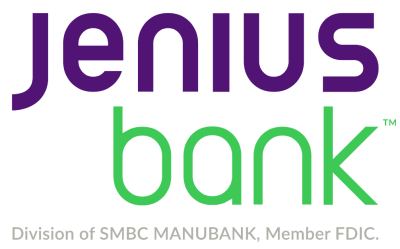Pros:
- No monthly fees or required balances
- Variety of CD terms available
- Competitive interest rates
- Reimbursed ATM fees
Cons:
- Best perks require Diamond member
- No checking account offered
- High opening amounts for CDs
- Tiered interest rates not offered
Pros:
- Low opening required amounts
- Variety of accounts available
- ATM fee reimbursements
- Competitive rates on most accounts
Cons:
- Must become a member first
- Accounts have tiered interest rates
- Daily cash limits on withdrawals
The high yield savings account and money market account do not have any monthly fees. Synchrony does not require a set amount be kept in their accounts. There is no required amount to open a savings or money market account.
Synchrony offers a variety of CD term lengths. The terms range from three months to five years. As with any CD, the longer the term length, the higher the interest rates offered on the account. There are no monthly fees for the CD accounts. A fee is charged if you withdraw your money before the CD reaches maturity.
The interest rates for all Synchrony accounts are competitive. The savings and money market accounts and CDs are much higher than your typical bank rates. They are competitive with other online-only accounts.
Synchrony will refund the ATM fees charged by other financial institutions. The fees for every account holder will be reimbursed up to $5 each billing cycle. If you are a Diamond Reward member, you will receive unlimited ATM reimbursements.
All customers receive some perks for being an account holder with Synchrony bank. To earn the best perks, you must become a Diamond Reward member. To qualify to be a Diamond Reward member, you must have over $250,000 in Synchrony accounts. You must also be a customer for at least five years.
There is no checking account offered through Synchrony Bank. They offer a high yield savings account, money market account, and CDs.
The amount required to open a CD is high. Synchrony offers a variety of different CD terms. To open any of the terms requires $2,000 as a minimum opening deposit.
The savings and money market rates do not increase based on how much money you invest. If you invest $1,000 or $250,000, you will earn the same interest rate for each amount. Some banks offer tiered interest rates based on how much money you invest in the account.
Navy Federal accounts have low opening required amounts. The savings account only requires $5 to open. The money market account does not have a set amount required to open, but to earn interest requires $2,500. The checking accounts do not have a set amount required to open. The CDs have tiered opening required amounts. The lowest amount to open a regular CD is $1,000. Special CD offers require lower opening amounts.
There are a wide variety of accounts offered through Navy Federal. They offer a savings account, money market account, and CDs. Their CD terms range from three-month terms to seven-year terms. Navy Federal offers five checking accounts. Those accounts include one for students, an online account, and an active duty account. Navy Federal also offers loans and credit cards.
Most Navy Federal checking accounts offer ATM fee reimbursement. Only the Everyday Checking account does not. The reimbursement amount ranges from $10 to $20, depending on the account. Some accounts require a direct deposit to earn the reimbursement.
Most all Navy Federal accounts offer competitive interest rates. The CDs offer the most competitive interest rates. Navy Federal savings and checking accounts earn interest. The rates are lower than online account rates. The money market account rates are slightly lower than online rates. These rates are higher than typical bank rates.
Before you open an account with Navy Federal, you must first become a member of the credit union. Servicemembers and veterans are eligible to join Navy Federal. Department of Defense employees are eligible. Family members of each of these groups can become members of Navy Federal Credit Union.
Navy Federal money market and Flagship checking account have tiered interest rates. To earn the most competitive rate on the MMA requires a balance of at least $50,000. The checking account requires $25,000. To earn the most competitive rate on Navy Federal CDs requires $100,000.
Navy Federal only allows for a daily cash withdrawal of $600. This includes cash from an ATM, a branch, or receiving cash back. There is a daily transaction limit of $3,000 for most checking accounts and $5,000 for the Flagship checking. Their accounts do not typically have limits on the number of transactions.





